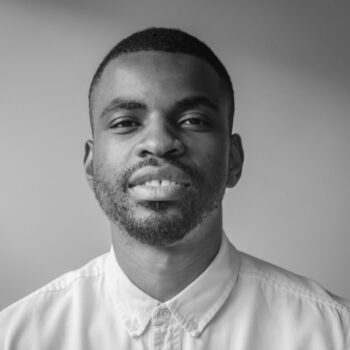Menzi Ndlovu
SpecialityPrrincipal Architect, OPlus Works
Menzi Ndlovu is a Johannesburg-based architect, originally born and raised in the rural town of Manguzi, located in northern KwaZulu-Natal, South Africa. He later relocated to Durban with his mother in pursuit of improved living conditions. This dual exposure—spending his teenage years in the city while returning to his rural hometown during holidays—profoundly shaped his understanding of the socio-cultural divide between urban and rural environments. These early experiences continue to inform his architectural practice, particularly in exploring how design can bridge these spatial and cultural gaps.
He completed his Master’s degree in Architecture at the University of the Witwatersrand in Johannesburg. His thesis, titled “The Urban Logic”, marked his initial academic inquiry into the transformative role of architecture in empowering rural communities through value addition and sustainable development.
Menzi has a strong interest in the intersection of technology and cultural identity, particularly the application of artificial intelligence as a tool for articulating African spatial narratives. This led to his participation in Noga Mo Jozi, South Africa’s first AI-based architecture exhibition, alongside Anita Szentesi, Dr. Sechaba Maape, and Dirk Coetser. The exhibition explored emerging “African urban imaginaries” within the context of Johannesburg.
Professionally, his time at LYT Architecture expanded his portfolio across a range of sectors including commercial, hospitality, education, retail, and residential projects. Among his notable achievements is the South Point Student Residences building, which received the African Property Award for Best Residential High-Rise Architecture in 2022–2023.
In 2023, Menzi founded OPLUS WORKS, an architecture and African design research studio. The practice is dedicated to redefining African luxury by grounding contemporary design in indigenous knowledge systems and cultural memory. OPLUS WORKS operates within a philosophical framework the studio refers to as the “Three Universes”: the Past Universe, the Future Universe, and the Now Universe—where their work takes form. Through this methodology, Menzi positions himself as both a designer and a custodian of African cultural identity.


